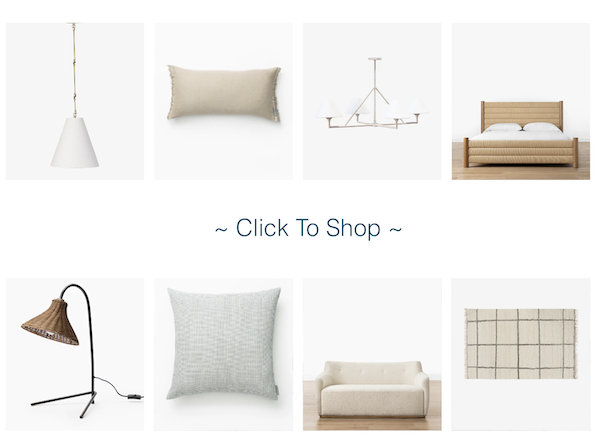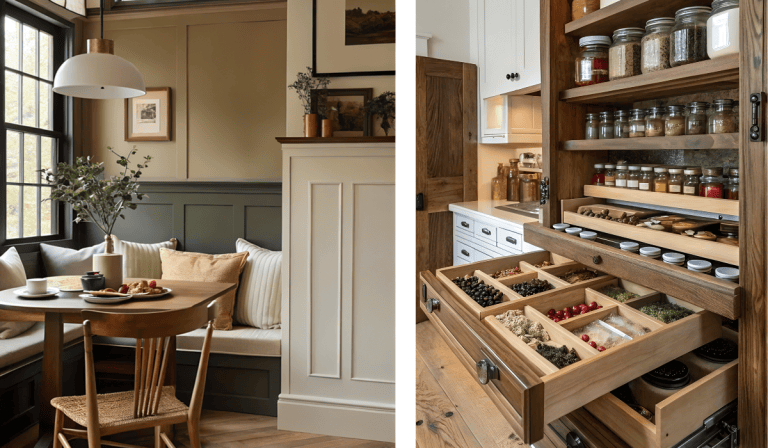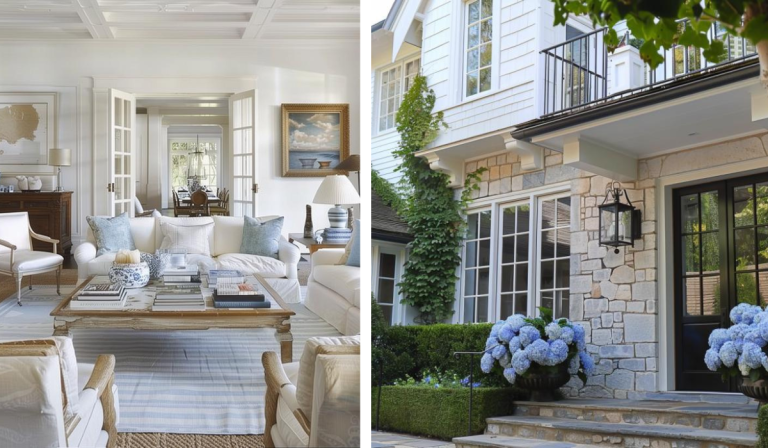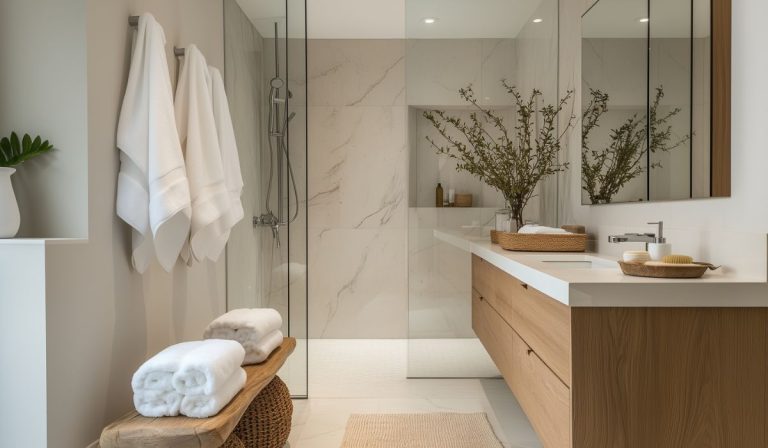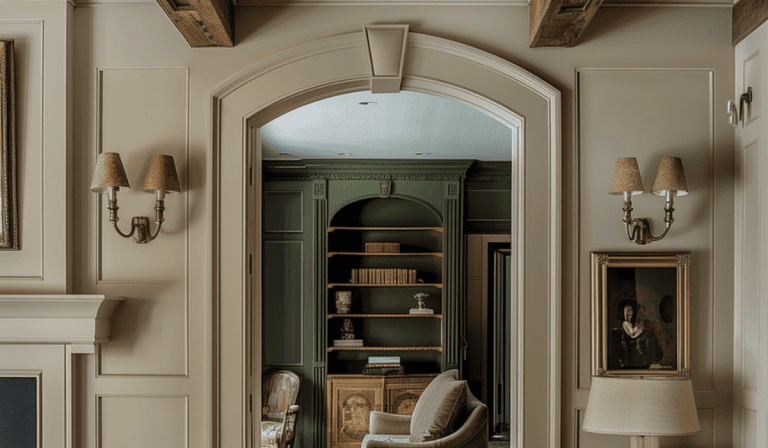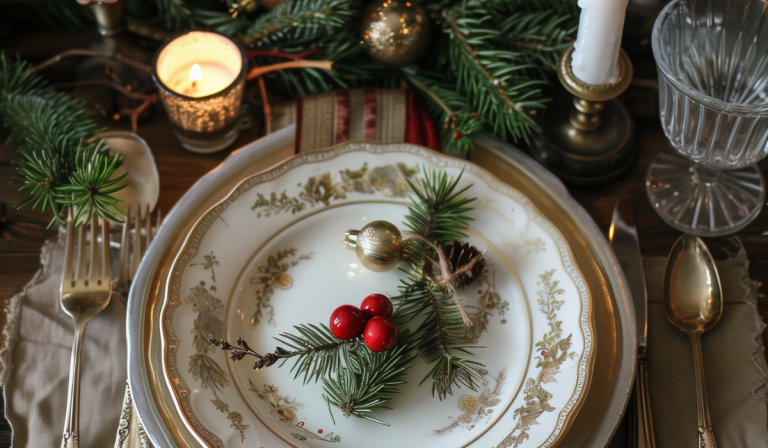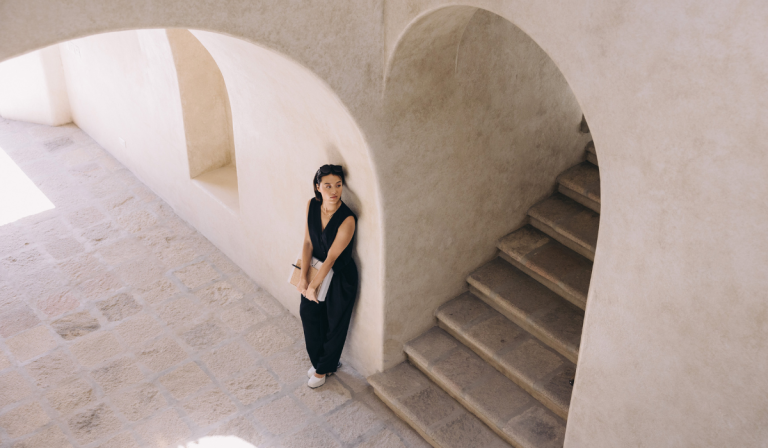What Is Transitional Interior Design Style? Explained
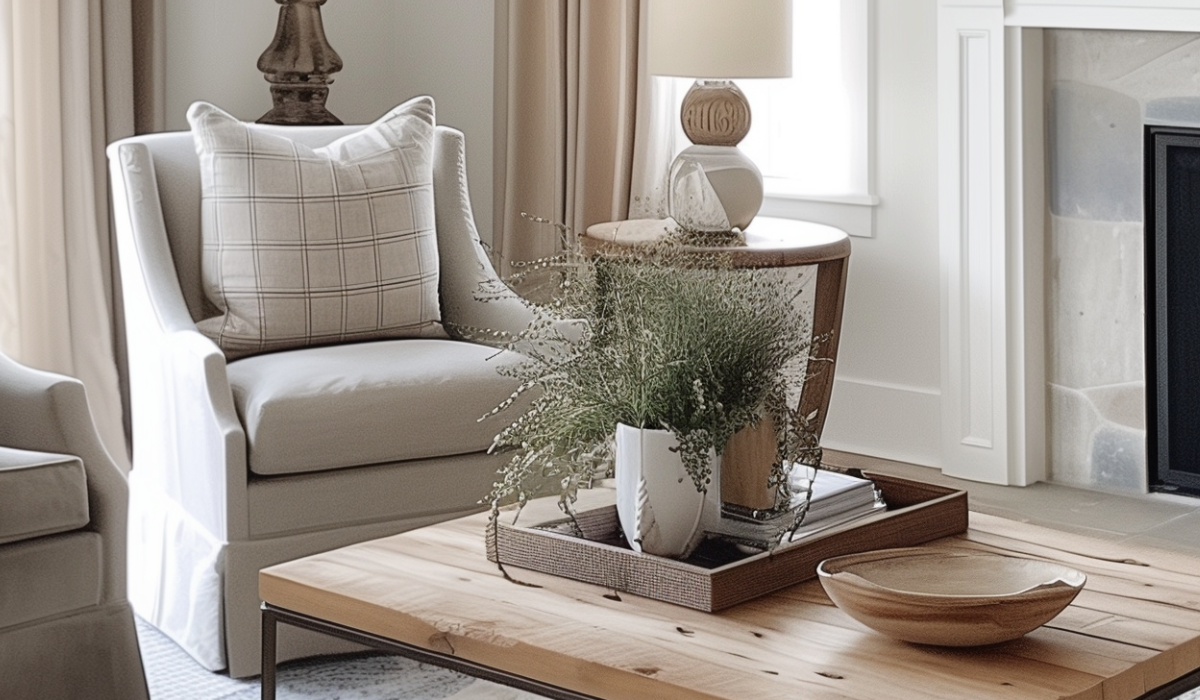
If you are asking ‘what is transitional interior design‘ after hearing the term mentioned in just about every decorating show and magazine lately – I have your answer!
‘Transitional’ simply refers to the combination of modern with vintage. The transition between old and new styles!
It’s perfect if you love the clean lines of modern design but also have a soft spot for vintage charm.
Make sure you get my home decorating book, which includes bonus resources to help you style your home like an absolute pro - yours FREE today!
As an affiliate partner of various brands and sponsored content, we may earn commission on qualifying purchases. Disclaimer | Advertise With Us
Read on for more details, and to see some gorgeous examples of transitional home decor in rooms I’ve designed.

What Is Transitional Decor?
Transitional decor combines the best of both worlds: the sleek, minimalist vibe of modern design and the warm, welcoming feel of vintage pieces.
The result is a look that’s stylish and sophisticated, but also cozy and inviting. It’s a great way to create a space that feels both fresh and familiar.
Can’t decide between modern and vintage? Why not have both? Transitional decor is all about blending different styles to create a look that’s balanced and timeless.
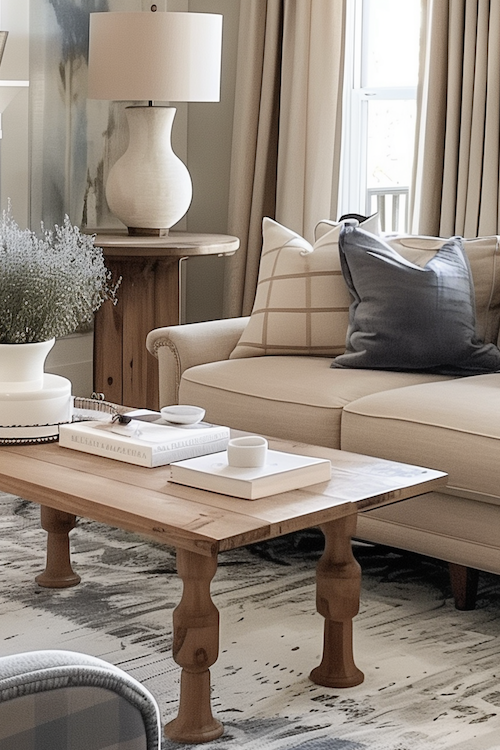
Key Elements of Transitional Interior Design Style
The key to nailing transitional decor is balance. Pair a modern sofa with a vintage coffee table, or mix contemporary art with an antique mirror.
Stick to a neutral color palette to keep things cohesive, and add pops of color with accessories and decor.
Also, don’t forget about texture! Combining different materials, like metal and wood, can add a lot of depth and interest to your space.
The Transitional Color Palette
One of the defining characteristics of transitional design is its neutral color palette. Soft grays, whites, and beiges dominate, providing a serene and calming backdrop.
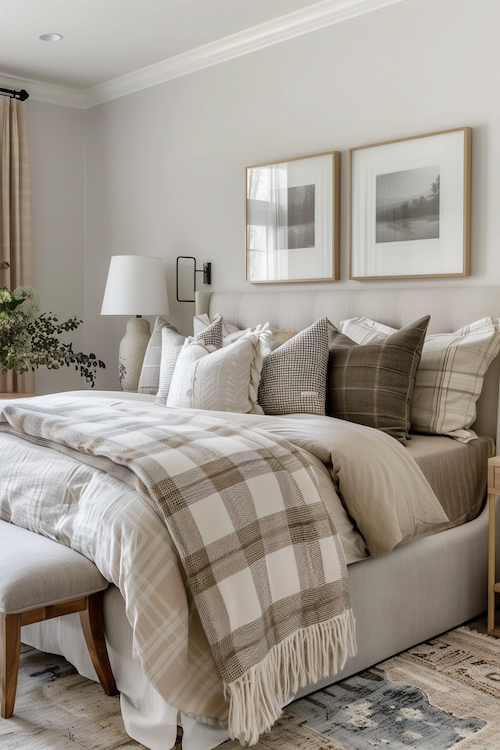
These muted tones allow for flexibility in decorating, making it easy to incorporate different styles and pieces over time.
This neutral base is often complemented with pops of color through accessories like throw pillows, artwork, and rugs. The idea is to keep the overall look cohesive and uncluttered, but not sterile or boring.
Transitional Furniture
Furniture in a transitional space combines the best of both new and old worlds.
The key is to choose high-quality, well-crafted items that will stand the test of time.
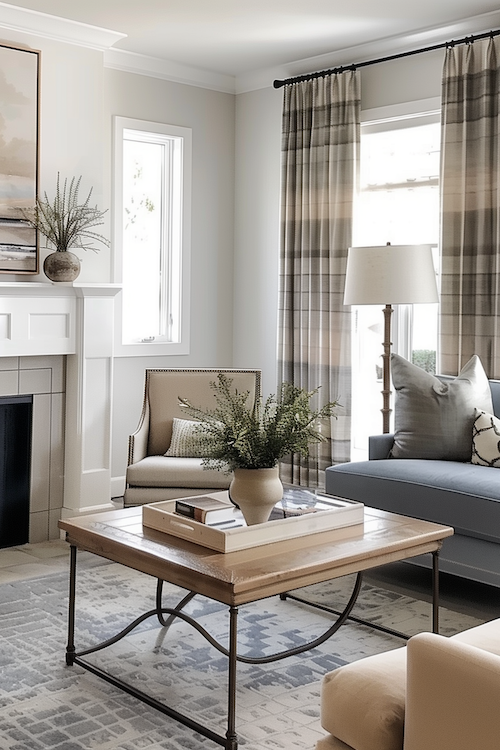
Traditional pieces, such as a tufted sofa or an antique wooden table, are paired with modern elements like sleek metal chairs or minimalist light fixtures.
A designer who styles homes in the transitional style often is Shea McGee, of Studio McGee. Shea Mcgee has a line of beautiful transitional furniture and decor:
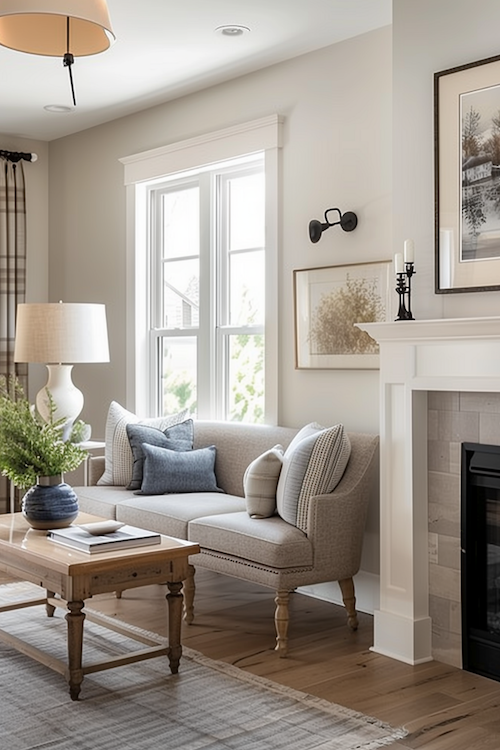
Transitional furniture typically features clean lines and smooth curves, avoiding the overly ornate details of classic design and the starkness of ultra-modern pieces.
Texture plays a crucial role in transitional interiors. Mixing different textures adds depth and interest to the space.
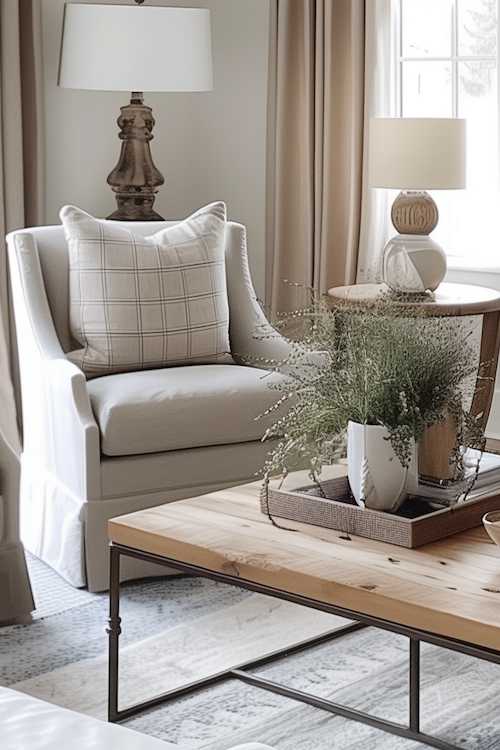
Think of combining a plush velvet sofa with a wrought iron and wood coffee table, or a leather armchair with a woven rug.
This interplay of materials creates a rich, layered look that is visually appealing and inviting. Natural materials like wood, stone, and metal are commonly used, adding an organic feel to the space.
Related: why you need to get familiar with organic modern interior styles.
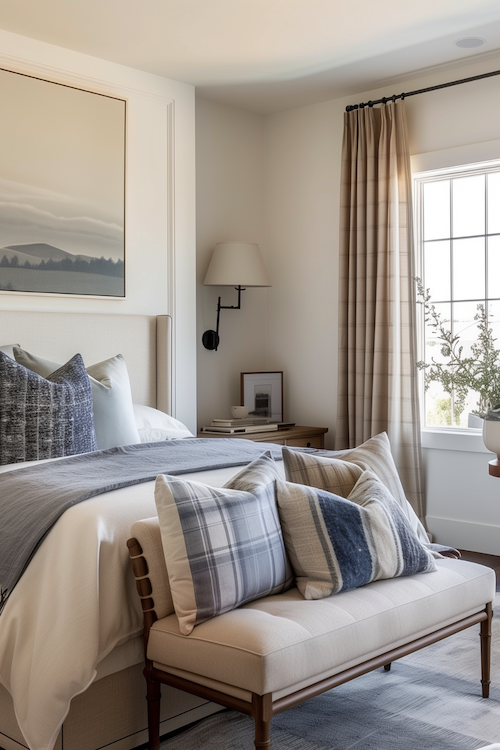
Transitional Decor
In terms of decor, transitional design favors simplicity and functionality. Accessories are carefully selected to enhance the space without overwhelming it.
Decorative items often include a mix of traditional and contemporary pieces, such as a classic chandelier paired with modern art.
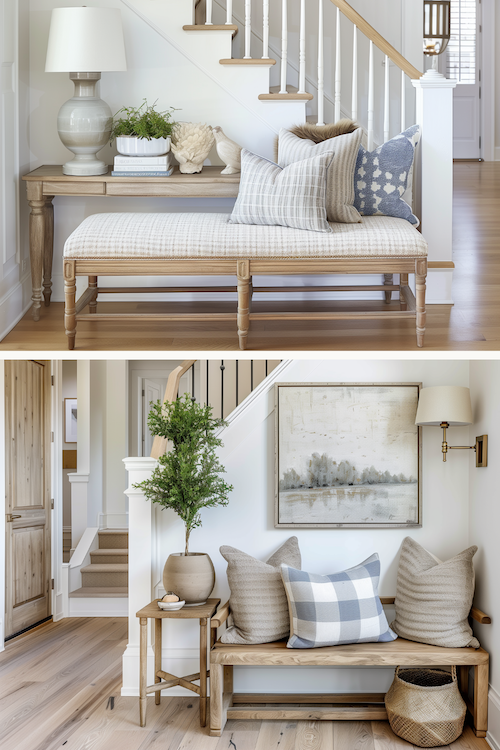
The goal is to create a curated look that feels collected over time rather than instantly matched. Mirrors, vases, and books are popular choices for adding personality and charm.
Transitional Lighting
Lighting is another important element in transitional design. A combination of different lighting types, including ambient, task, and accent lighting, helps to create a well-lit, inviting space.
Statement light fixtures, such as chandeliers or pendant lights, can add a touch of glamour and serve as focal points in the room.
Recessed lighting and floor lamps provide additional layers of light, enhancing the overall ambiance.

Why Is Transitional Design So Popular?
One of the great things about transitional design is its versatility. It works well in various types of homes, from urban apartments to suburban houses.
The blend of old and new makes it easy to update and refresh the look over time, incorporating new trends while maintaining a classic foundation. This adaptability is one of the reasons why transitional design has enduring appeal.
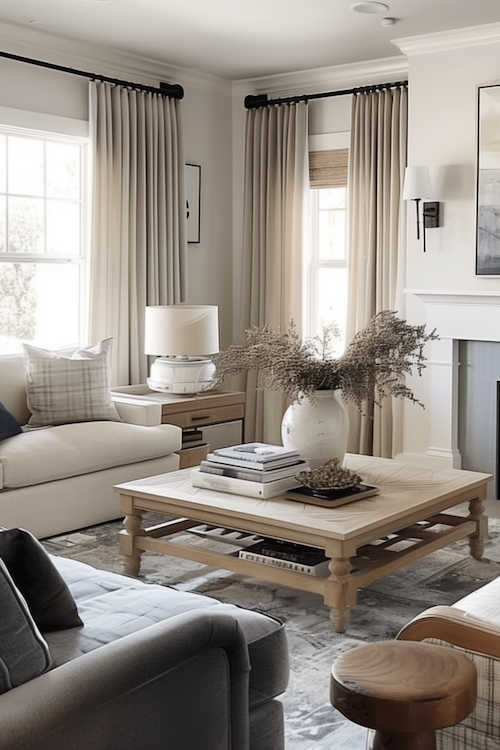
Where To Buy Transitional Style Furniture
Here’s a curated list of transitional-style furniture and decor:
You can also check out this retailer for more!
How To Style Transitional Decor In Your Home
To create a transitional space, start with a neutral color palette and invest in quality furniture that combines traditional and modern elements. Add texture through different materials and choose decor pieces that complement the overall look.
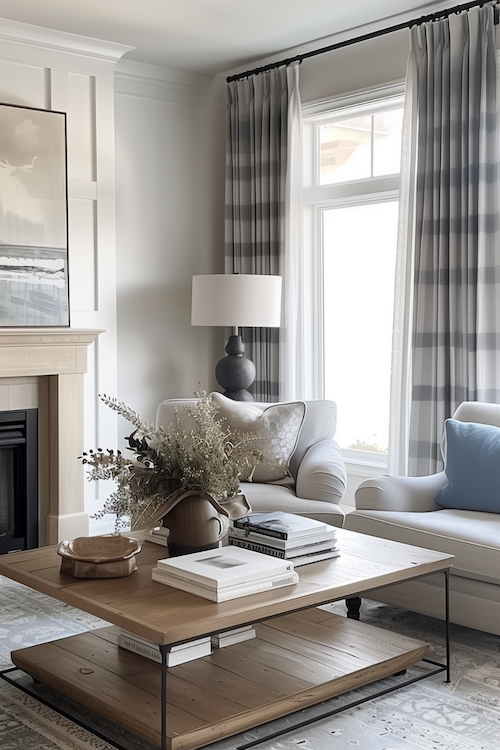
Focus on simplicity, functionality, and timeless elegance. With its perfect balance of classic and contemporary, transitional interior design offers a stylish and sophisticated approach to decorating your home.
The Trick To Creating a Cohesive Transitional Look
When mixing different styles, it’s important to create a cohesive look. The trick to doing transitional decor correctly is to stick with a color pallet. You can mix different patterns and furniture shapes/styles so long as everything works within a complementary color palette.
This is what will make the difference between a room that looks intentionally designed, and one that looks like a messy thrift store of mis-matched junk!

Simply choose a few key pieces that tie everything together, like a statement rug or a unique light fixture. And remember, less is more.
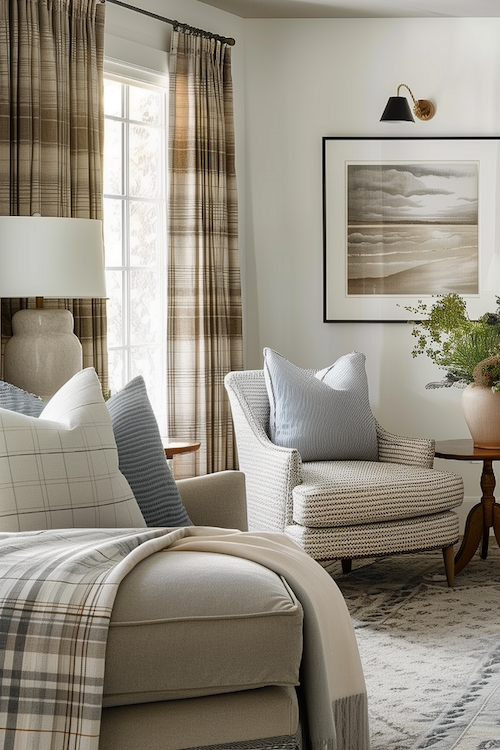
You don’t need to fill every inch of your space with stuff. A few well-chosen pieces can make a big impact.
What Is Transitional Interior Design – Conclusion
In summary, transitional interior design is about blending traditional and contemporary styles to create a balanced, timeless look.
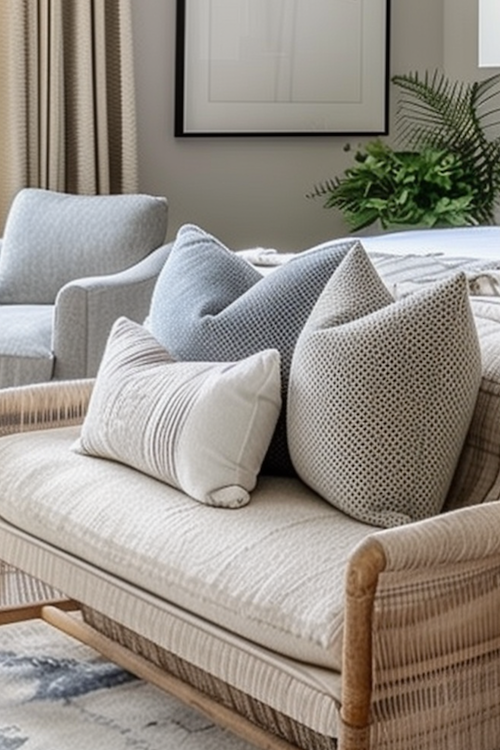
It features a neutral color palette, quality furniture with clean lines, and a mix of textures and materials.
The decor is simple and functional, with carefully selected accessories that add personality and charm.
This versatile style works well in various types of homes and can be easily updated over time, making it a popular choice for those seeking a sophisticated yet inviting space.





